Governors
What do Governors do?
The role of School Governors at Dunkirk Primary School is to:
- Set strategic direction
- To hold school leaders to account for improving performance
- To make sure money is well spent and resources meet the needs of the school
To do this we provide challenge and support to the Head Teacher, drawing on our own knowledge and experience.
We meet as a full governing body once a term (after school) and oversees the strategic development of the school alongside the Head Teacher and members of the Senior Leadership Team. There are also four termly committee meetings:
- Strategic Development Committee (SDC)
- Finance and General Purposes committee (FGP)
- Pupil and Personnel committee (P&P)
- Fun Club Management committee (childcare)
The School Improvement that we focus on are:
- Leadership and Management
- Quality of Teaching
- Behaviour and Safety
- Outcomes for Pupils
- Finance
We also have governors who cover specific monitoring roles:
- Early Years
- Pupil Premium
- Health and Safety
- Safeguarding
- SMSC (Spiritual, Moral, Social and Cultural Development)
- SEN (Special Education Needs)
- Training
- Curriculum areas e.g. English
We make decisions together on matters such as performance, targets, school policies and the overall school improvement plan.
Which Governor does what?
Maria Artingstoll is our Chair of Governors and Chair of P&P. The Chair of Governors is responsible for: 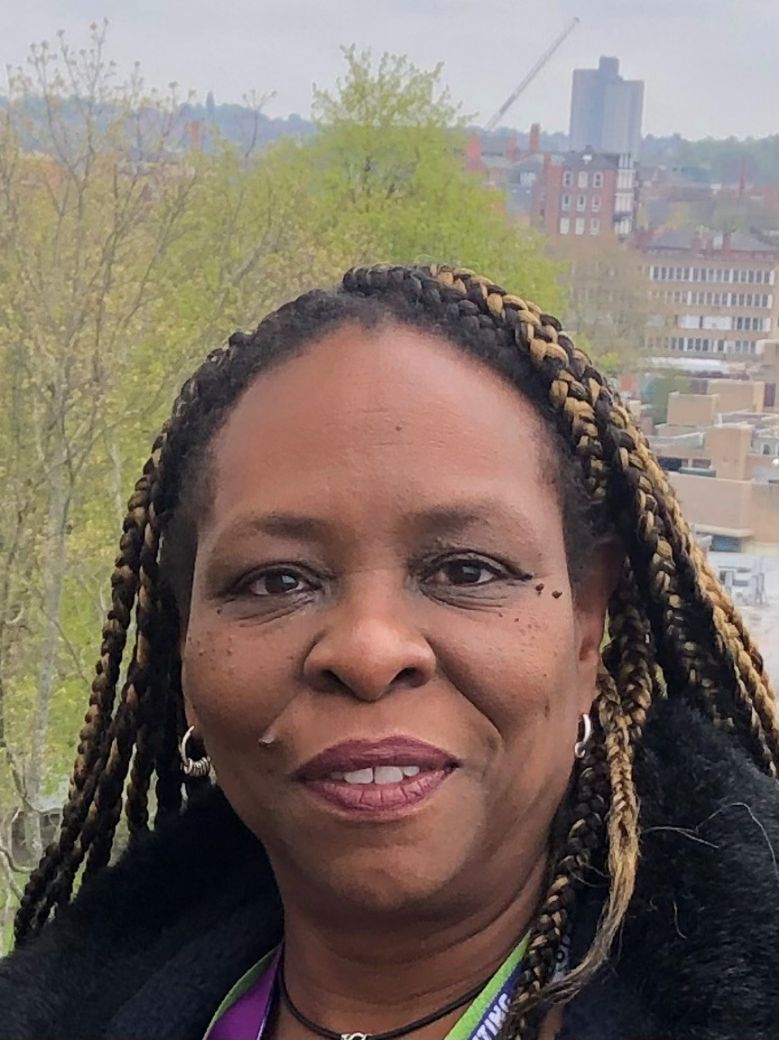
• working with the headteacher to promote and maintain high standards of
educational achievement
• ensures that the governing body sets a clear vision, ethos and strategic direction
for the school
• with the governing body holds the headteacher to account for the educational
performance of the school and its pupils, and for the performance management
of staff
• ensures oversight of the financial
Maria is supported in the role by Pauline Smith, the Vice Chair of Governors, Tendai Dube, chair of SDC and Steve Whalley, Chair of FGP.
Governor Code of Conduct for Dunkirk Primary School
The governing body has the following core strategic functions:
Establishing the strategic direction, by:
- Setting the vision, values, and objectives for the school
- Agreeing the school improvement strategy with priorities and targets
- Meeting statutory duties
Ensuring accountability, by:
- Appointing the Headteacher
- Monitoring progress towards targets
- Performance managing the Headteacher
- Engaging with stakeholders
- Contributing to school self-evaluation
Ensuring financial probity, by:
- Setting the budget
- Monitoring spending against the budget
- Ensuring value for money is obtained
- Ensuring risks to the organisation are managed
As individuals on the governing body we agree to the following:
Role & Responsibilities
- We understand the purpose of the governing body and the role of the Headteacher.
- We accept that we have no legal authority to act individually, except when the governing body has given us delegated authority to do so, and therefore we will only speak on behalf of the governing body when we have been specifically authorised to do so.
- We accept collective responsibility for all decisions made by the governing body or its delegated agents. This means that we will not speak against majority decisions outside the governing body meeting.
- We have a duty to act fairly and without prejudice, and in so far as we have responsibility for staff, we will fulfil all that is expected of a good employer.
- We will encourage open government and will act appropriately.
- We will consider carefully how our decisions may affect the community and other schools.
- We will always be mindful of our responsibility to maintain and develop the ethos and reputation of our school. Our actions within the school and the local community will reflect this.
- In making or responding to criticism or complaints affecting the school we will follow the procedures established by the governing board.
- We will actively support and challenge the Headteacher.
Commitment
- We acknowledge that accepting office as a governor involves the commitment of significant amounts of time and energy.
- We will each involve ourselves actively in the work of the governing body, and accept our fair share of responsibilities, including service on committees or working groups.
- We will make full efforts to attend all meetings and where we cannot attend explain in advance why we are unable to.
- We will get to know the school well and respond to opportunities to involve ourselves in school activities.
- We will visit the school, with all visits to school arranged in advance with the staff and undertaken within the framework established by the governing body and agreed with the Headteacher.
- We will consider seriously our individual and collective needs for training and development, and will undertake relevant training.
- We accept that in the interests of open government, our full names, date of appointment, terms of office, roles on the governing body, attendance records, relevant business and pecuniary interests, category of governor and the body responsible for appointing us will be published on the school’s website.
Relationships
- We will strive to work as a team in which constructive working relationships are actively promoted.
- We will express views openly, courteously and respectfully in all our communications with other governors.
- We will support the Chair in their role of ensuring appropriate conduct both at meetings and at all times, We are prepared to answer queries from other governors in relation to delegated functions and take into account any concerns expressed, and we will acknowledge the time, effort and skills that have been committed to the delegated function by those involved.
- We will seek to develop effective working relationships with the Headteacher, staff and parents, NST, the Local Authority and other relevant agencies and the community.
- We will not disclose information, express our views or comment on the school or instances linked to the school including through social media channels.
Confidentiality
- We will observe complete confidentiality when matters are deemed confidential or where they concern specific members of staff or pupils, both inside or outside school.
- We will exercise the greatest prudence at all times when discussions regarding school business arise outside a governing board meeting.
- We will not reveal the details of any governing body vote.
Conflicts of interest
- We will record any pecuniary or other business interest (including those related to people we are connected with) that we have in connection with the governing body’s business in the Register of Business Interests, and if any such conflicted matter arises in a meeting we will offer to leave the meeting for the appropriate length of time. We accept that the Register of Business Interests will be published on the school’s website.
- We will also declare any conflict of loyalty at the start of any meeting should the situation arise.
- We will act in the best interests of the school as a whole and not as a representative of any group, even if elected to the governing body.
Breach of this code of conduct
- If we believe this code has been breached, we will raise this issue with the Chair and the Chair will investigate; the governing body will only use suspension/removal as a last resort after seeking to resolve any difficulties or disputes in more constructive ways.
- Should it be the Chair that we believe has breached this code, another governor, such as the Vice Chair will investigate.
The Seven Principles of Public Life
(Originally published by the Nolan Committee: The Committee on Standards in Public Life was established by the then Prime Minister in October 1994, under the Chairmanship of Lord Nolan, to consider standards of conduct in various areas of public life, and to make recommendations).
Selflessness - Holders of public office should act solely in terms of the public interest. They should not do so in order to gain financial or other material benefits for themselves, their family, or their friends.
Integrity - Holders of public office should not place themselves under any financial or other obligation to outside individuals or organisations that might seek to influence them in the performance of their official duties.
Objectivity - In carrying out public business, including making public appointments, awarding contracts, or recommending individuals for rewards and benefits, holders of public office should make choices on merit.
Accountability - Holders of public office are accountable for their decisions and actions to the public and must submit themselves to whatever scrutiny is appropriate to their office.
Openness - Holders of public office should be as open as possible about all the decisions and actions that they take. They should give reasons for their decisions and restrict information only when the wider public interest clearly demands.
Honesty - Holders of public office have a duty to declare any private interests relating to their public duties and to take steps to resolve any conflicts arising in a way that protects the public interest.
Leadership - Holders of public office should promote and support these principles by leadership and example.
Governor Attendance
Governor attendance for the 22-23 academic year will be available once published by Governor Hub - this is usually in the beginning of the Autumn term.
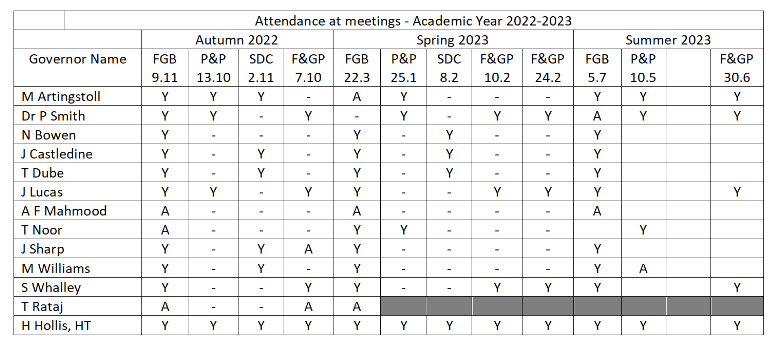
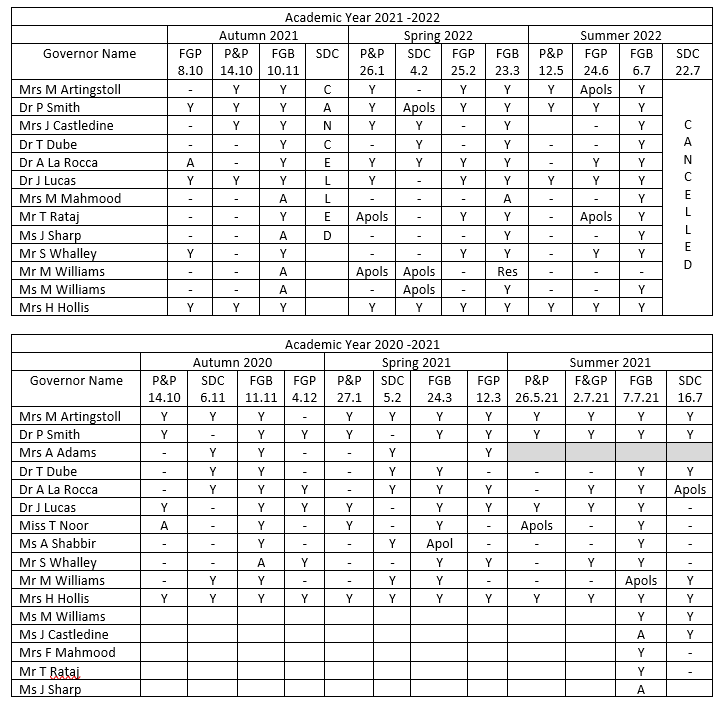
Constitution
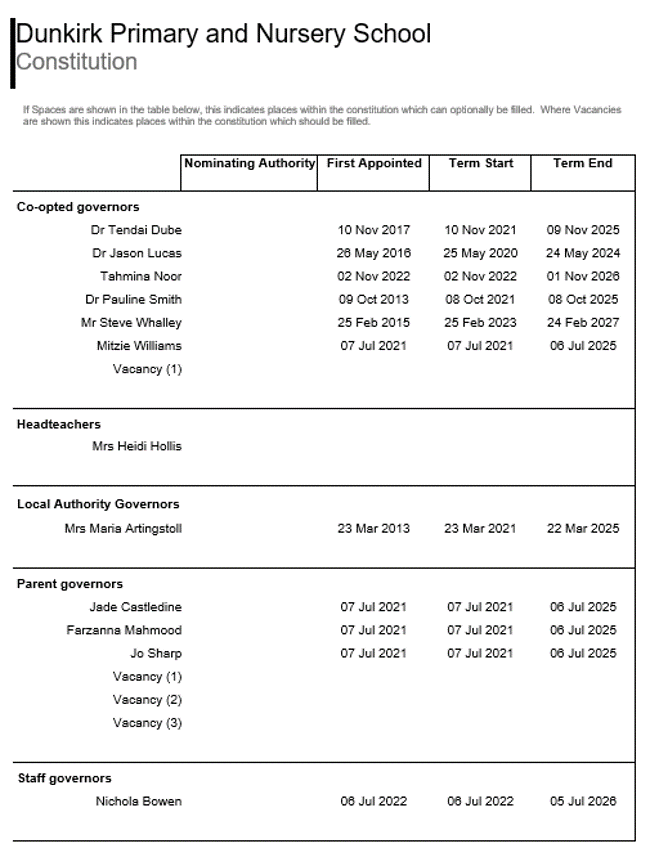
No Governors recorded any financial or business interests.
Minutes of all meetings are available upon request.
Governor profiles:
Maria Artingstoll

Role: Chair
Msc HRD and SFEDI business advisor
Hello, my name is Maria and I am the Chair of Governors. I am also the Chair of the Fun Club. Dunkirk is very special to me, as an ex-pupil, I am proud to be involved in helping to run the school. I have been a governor for over 20 years. I work for the East Midlands Chamber of Commerce on behalf of the D2N2 Local Enterprise Partnership. My office is based at County Hall, Nottinghamshire County Council. My current work involves working with three BIG Lottery and European projects helping people into work. My work is varied and involves working with a wide variety of local, regional and national partners. I previously worked for Nottingham Community and Voluntary Sector (NCVS), where I was the Network Officer for children and young people. I am actively involved in policy development for children and young people and I work in partnership with Nottingham City Council, Nottinghamshire County Council, Local Businesses, The Health Service, Voluntary Community and Charitable organisations to make sure that the needs of families and children are met. I bring experience of working as a consultant, fundraiser, business advisor and researcher to the governing body. I can be contacted by email maria.artingstoll@dunkirk.nottingham.sch.uk
Pauline Smith

Tahmina Noor

Role: Parent Governor
Hi, my name is Tahmina and I am currently a full time mature student.
I grew up in Lenton, and went to Dunkirk Primary School when I was at school age! Back then it was called Lenton Primary School. I have many great memories from this school and I am extremely happy to be able to contribute to the ongoing success of the school wherever possible.
Children should be able to go to School, where learning is an enjoyable experience, and the network around them is filled with support and positivity.
More than anything, as a parent, I am passionate in my desire to help achieve the best possible schooling experience for our children, to give them the best possible start and foundation for a happy and healthy life ahead.
Tendai Dube
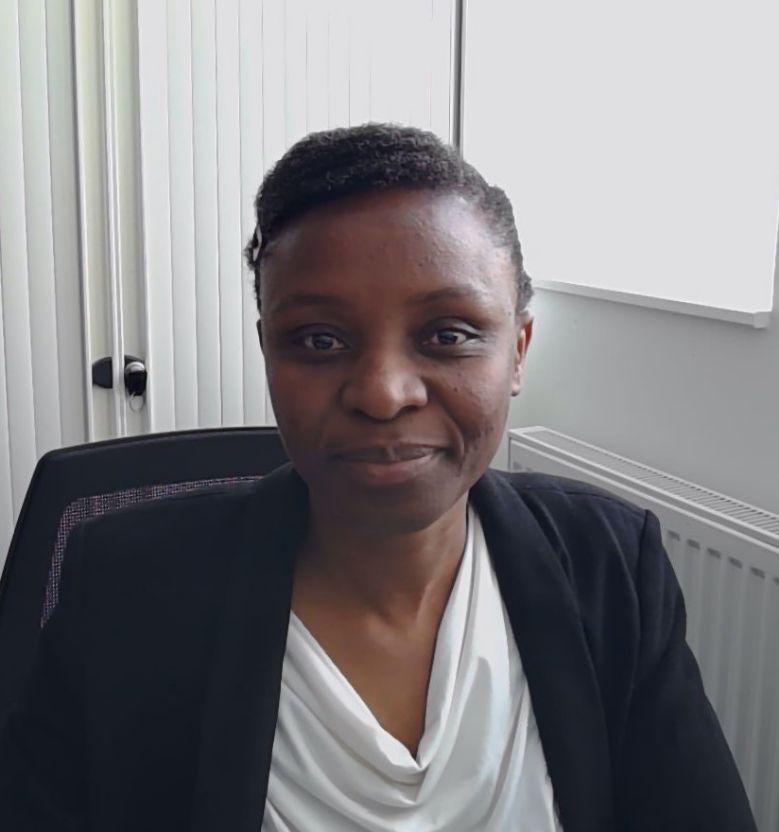
Role: Parent Governor
Why I’m a Governor:
I love to contribute to the governance of Dunkirk Primary School as I am passionate about learning and teaching as well as assessment. I have a daughter who is a pupil at the school’s Highfields Campus, so I want to have influence in the decisions that affect her. Also our first child was a pupil at Dunkirk Primary School and I didn’t feel that I participated as much in the school’s activities and thought this would be another chance to do so. One of the things that both my husband and I adore about the school is its international status. The cultural mix of the school makes it special, and as an international parent myself, it gives me joy as a Parent Governor to be able to contribute to the nitty-gritty of upholding that status and generally the school's amazing values. I believe in identifying positives in negative situations and/or turning the negatives into positives. Basically, every challenge can be resolved one way or another if people work together, that's my philosophy.
What I bring to Dunkirk’s Governing Body:
I bring knowledge and experience of teaching English as a second language. Given the number of children who come from all around the world, some with no knowledge of the subject, it’s an interesting focus. I also bring knowledge and experience of teaching ICT and am interested in contributing in that area as well. I have experience of influencing senior management in making strategic decisions.
What I find interesting about being a Governor:
The ability to work with the school’s leadership supporting them in their efforts to achieve higher goals for the school. As a governor I ensure the school’s vision is going in the right direction. It’s also interesting to realise the hard work that goes on in the background to make the school a safe and enjoyable place for everyone. It’s satisfying to see my contributions/suggestions being implemented.
Steve Whalley

Role: Co-opted Governor
Steve Whalley is a co-opted governor, and Chair of the Finance Committee. He also acts as a link governor for maths and science at the school. Steve is a Commercial Manager at Nottingham Trent University, with special interest in the arts, architecture, design and humanities subjects. He brings to the school a knowledge of financial management, income generation and marketing.
Jason Lucas

Role: Community Governor
Why I’m a governor?
I started as a governor when my daughter was a pupil at Dunkirk because I wanted to give something back to the school. It's a slow learning process, but having been a governor for a few years now, I have a much better understanding of the school, its successes and its challenges.
What I bring to Dunkirk’s Governing Body?
From my experiences as a lecturer at the Open University, I can draw on ideas around pedagogy, pupil engagement and widening access to help inform my advice and decisions.
I also work as an GIS and customer insight analyst at Experian, using numbers and maps to understand people and places. This helps me dive into the stats and reports about the school. I've organised volunteering groups to help maintain the school grounds.
What I find interesting about being a governor?
Constantly learning more about how the school works. The joy and creativity in children's work.
A little bit about me:
I teach Classics at the OU – if you want to know about Romans or archaeology (or a little about the Greeks), please get in touch.
Governor Meetings 23/24
By clicking on this link, you will be able to see the meetings planned for the 23/24 academic year.
